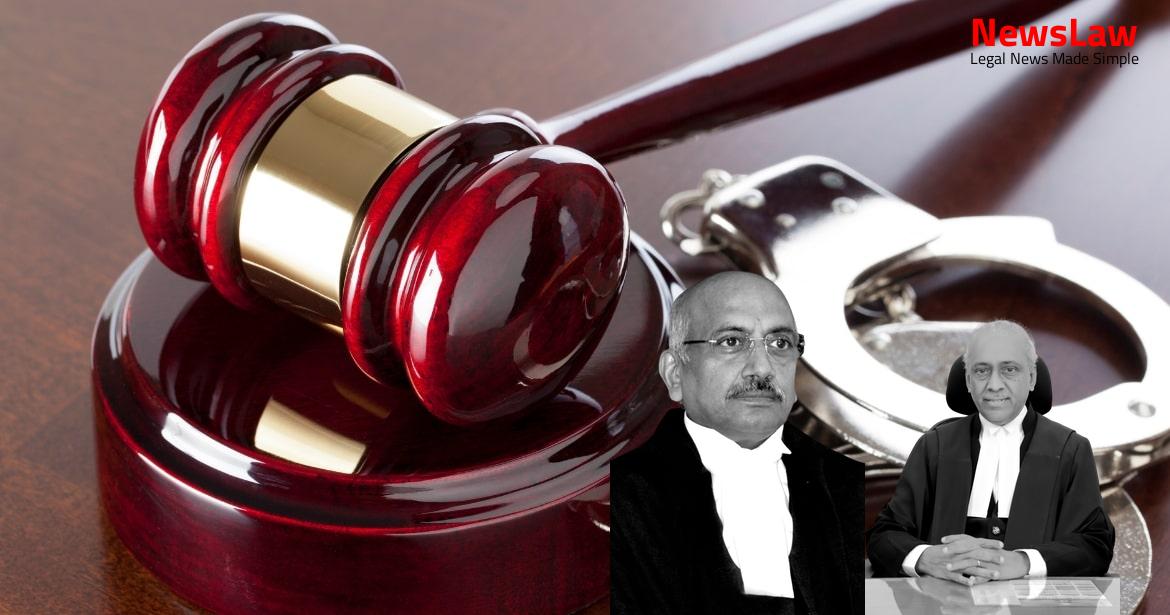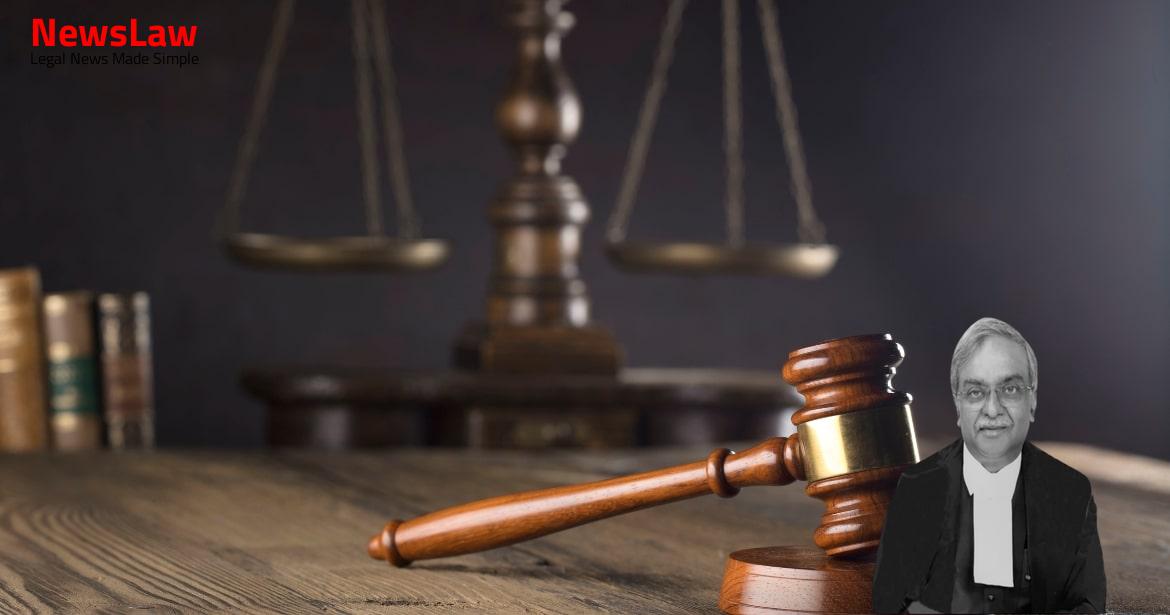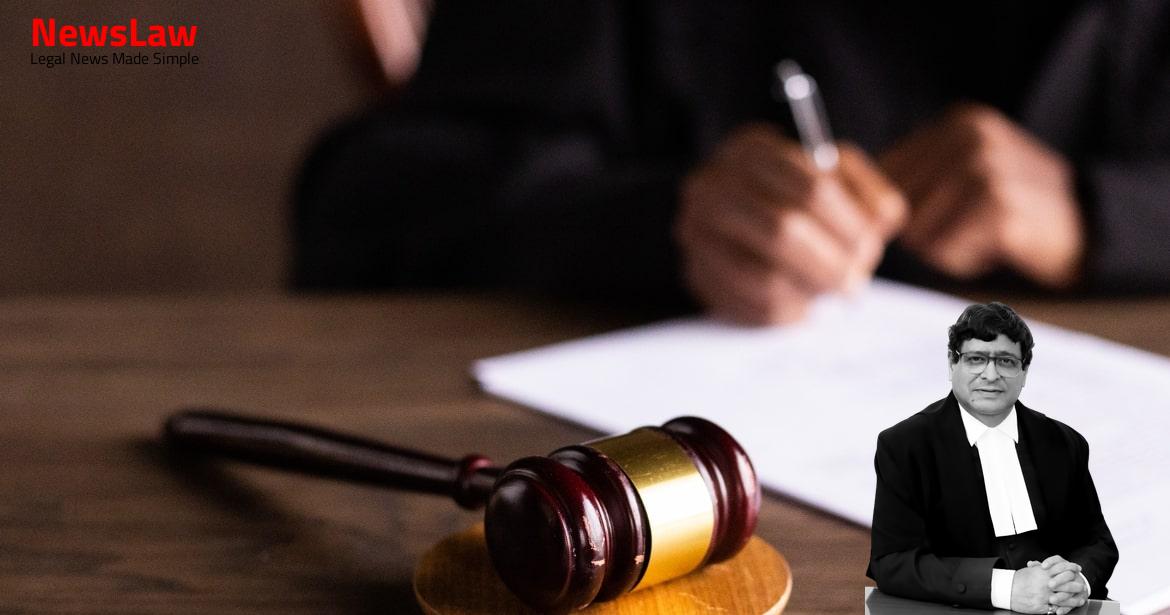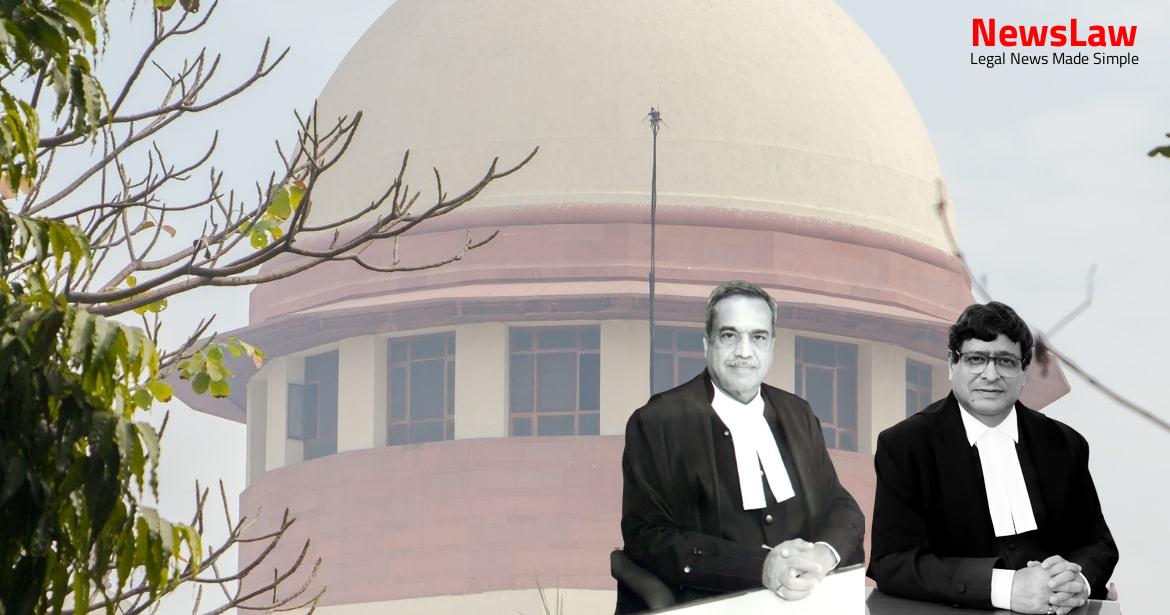Analysis of Revocation of Letters of Administration

Explore the intricacies of a recent legal case involving the revocation of Letters of Administration under the Indian Succession Act. The focus is on the court’s legal analysis in determining ‘just cause’ for revoking the grant. Follow along to understand the nuances of Section 263 and the importance of citing necessary parties in such proceedings.
Facts
- The Civil Court dismissed the application for revocation, but the order was set aside in appeal.
- The legatee is now in appeal before the Court.
- An appeal under Section 299 of the Indian Succession Act, 1925 was filed by the brother of the testator for revocation of Letters of Administration, which was allowed.
- The appellants sought Letters of Administration of a registered Will deed dated 23.08.1991 executed by Thankappan Nadar in favor of the appellant and his two sons.
- Another brother of the testator filed an application for revocation of the Letters of Administration on the ground of non-impleadment of all the legal heirs in the proceedings.
Arguments
- Attention was drawn to the language difference between Section 276 and Section 278.
- Counsel for the appellants argued that their filing fell under Section 276(1).
- It was contended that the details of family and relatives of the deceased under Section 278(1) cannot be imported into Section 276.
Analysis
- The petition filed by the appellants was not under Section 278(1).
- Explanation (a) under Section 263 defines just cause for revocation of Letters of Administration.
- Grant of Letters of Administration can be revoked for ‘just cause’ as per Section 263.
- Some colonial statutes contain Illustrations that are part of the statutes.
- The appellants’ petition was for the grant of Letters of Administration with the Will annexed.
- Distinction between Section 276 and Section 278 is not the issue in this case.
- Illustration (ii) under Section 263 covers grants made without citing necessary parties.
- Section 263 outlines the content of the judgment.
- It is the 6th section in the document.
- This section is crucial for understanding the context of the judgment.
- High Court’s order deemed correct as no error found warranting interference
- Indian Succession Act, 1925 is considered applicable in the case
- High Court decision supported as it found just cause for revoking the grant
Decision
- The appeals have been dismissed.
- Pending applications have been disposed of.
Case Title: SWAMINATHAN Vs. ALANKAMONY (DEAD) THROUGH LRS. (2022 INSC 283)
Case Number: C.A. No.-000798-000799 / 2013
Related Posts

Ensuring Inclusive Education for Persons with Disabilities: A Legal Analysis
The analysis section delves into the unfortunate errors and injustices suffered by the appellant during the NEET examination process. It…

Interpretation of Corporate Guarantor under IBC
The Court’s legal analysis in a recent case delves into the interpretation of ‘Corporate Guarantor’ under the Insolvency and Bankruptcy…

Land Dispute Legal Analysis
Explore a case where a court delves deep into the nuances of property ownership and adverse possession. The court’s legal…





